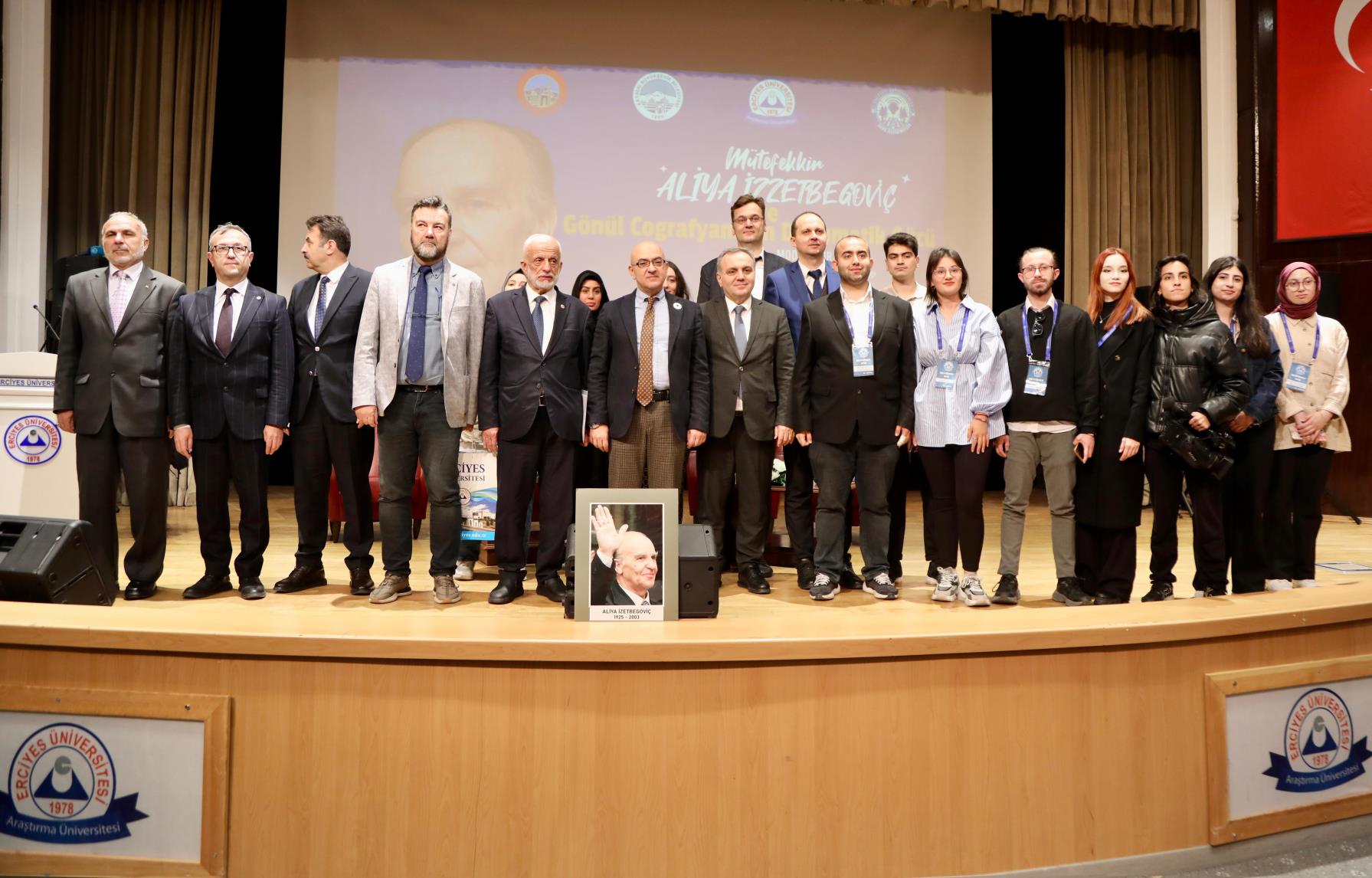Panel on Thinker Alija Izetbegovic and the Diplomatic Power of Our Cultural Geography

A panel titled "Thinker Alija Izetbegović and the Diplomatic Power of Our Cultural Geography" was organized in collaboration with the Governorship of Kayseri, the Kayseri Metropolitan Municipality, and the ERU Young Communicators Club.
AK Party Kayseri Deputy Dr. Murat Cahid Cıngı, Chief Public Prosecutor Habib Korkmaz, Kayseri Metropolitan Mayor Dr. Memduh Büyükkılıç, ERU Rector Prof. Dr. Fatih Altun, Vice-Rectors Prof. Dr. Oktay Özkan and Prof. Dr. Cevdet Kırpık, Secretary-General Prof. Dr. İbrahim Narin, Provincial Director of Culture and Tourism Assoc. Prof. Şükrü Dursun, deans of faculties, academics, and students attended the event.
The guests first toured the exhibition featuring photographs depicting the life of Aliya Izzetbegović.
After the exhibition, Dr. Memduh Büyükkılıç, who spoke at the opening of the program, said: "Aliya Izzetbegović became not only the voice and conscience of the Bosnian people but also the shared conscience and voice of our entire cultural geography. He has always guided us through the traces he left in the fields of justice, humanity, and diplomacy. Today, rediscovering and remembering his world of ideas here is a debt of loyalty for us."
Rector Altun, in his speech, said: "Aliya Izzetbegović, with his scholarly personality in the world of ideas, and the messages and knowledge he shared with us in our cultural geography, represents information that should never be forgotten. We place great importance on our students benefiting from this spiritual atmosphere. Because academic life is not just about receiving education in certain courses within the university and obtaining a diploma, but also about continuing with a social environment and a sensitive personality, and sharing the knowledge gained from a globally influential wisdom. We remember Aliya Izzetbegović with gratitude."
After the opening speeches, the panel began. In his speech during the panel, Dr. Murat Cahid Cıngı, moderator of the panel, thanked those who contributed to organizing the event.
Providing information about the life of Aliya Izzetbegović to the participants, Dr. Cıngı continued as follows: "Aliya Izzetbegović was not just a president, a leader, a commander-in-chief, an intellectual Muslim, a father of a family, or a charismatic leader admired even by the West. He was an intellectual leader who embodied all of these qualities and especially left his mark in his later years."
Former Istanbul Deputy Dr. Hüseyin Kansu also stated that the Young Muslims movement, which began in 1939 in Sarajevo, played an important role in shaping and developing Aliya Izzetbegović's world of ideas.
Assoc. Prof. Admir Mulaosmanović, a faculty member at Balıkesir University, stated: "When we look at the era of Aliya Izzetbegović in Bosnia, even after seventy years, there is a tremendous respect for the Ottoman Empire and a reverence for the Ottoman understanding of Islam, and they continue to uphold these values."
Researcher Dr. Merzuk Grabus said: "Bosnia had many scholars, and thanks to these scholars, Islam was taught."
The event ended after the presentation of plaques to the panelists and a group photo.











